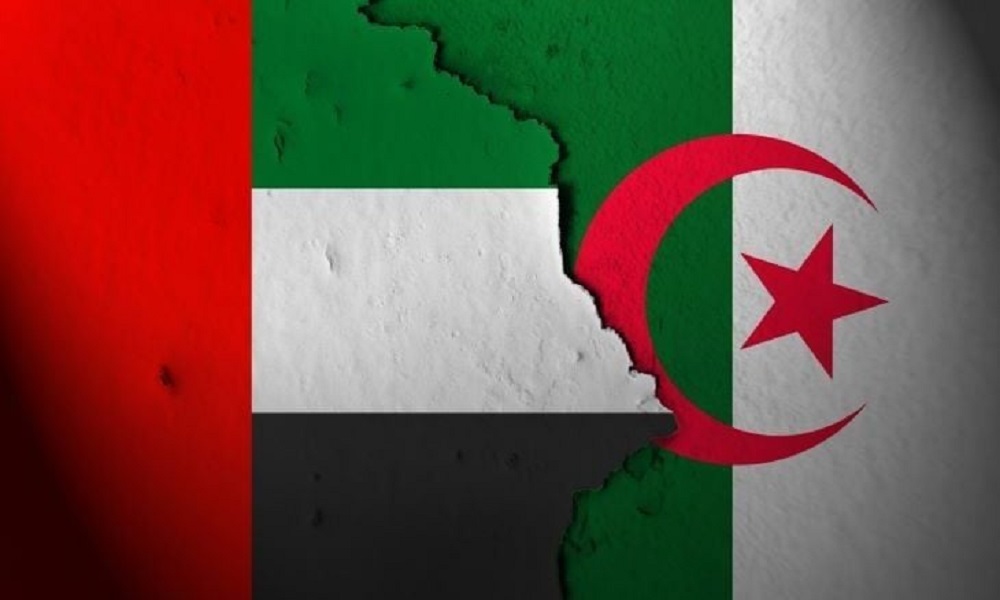Watan-A visit by a UAE delegation, led by Minister of State Sheikh Shakhbut bin Nahyan Al Nahyan to Mali and Niger, has stirred unease in Algerian circles amid growing suspicions of Emirati intentions in a region Algeria considers its strategic backyard—especially at a time when Algeria’s relations with Sahel countries are severely strained.
According to Malian media, the Emirati minister’s visit is part of a broader effort to boost bilateral partnerships and expand cooperation in vital sectors such as security, counterterrorism, finance, energy, housing, and infrastructure. The visit included a meeting at the Koulouba Palace with Mali’s transitional president, General Assimi Goïta.
The signing of new agreements was portrayed as a continuation of longstanding strategic cooperation dating back to Sheikh Zayed bin Sultan Al Nahyan’s historic visit to Bamako in 1985. This relationship has deepened in recent years through UAE support for development projects, including social housing, renewable energy, and infrastructure development.
Malian reports emphasized that the UAE aims to expand its African partnerships, particularly in the Sahel, in ways that serve its economic and security interests while contributing to regional stability and development. Goïta reiterated Mali’s commitment to its sovereign principles and praised the UAE’s consistent support.
Algerian Media Responds with Alarm
In stark contrast, Algerian media voiced strong skepticism. The newspaper El Khabar alleged that the UAE’s presence in the region is driven by “destructive motives,” asserting that Abu Dhabi is exploiting the diplomatic void left by Algeria’s cooling relations with Sahel countries.
The report accused the UAE of backing military regimes in suppressing political opposition and waging war on the Tuareg in northern Mali. El Khabar warned that the timing of the visit coincides with major power shifts and rising violence in Mali and Libya, suggesting that Abu Dhabi might be encouraging Mali’s hostile posture toward Algeria—possibly in coordination with Morocco’s broader regional designs.
The paper also linked the UAE’s moves to its normalization with Israel, claiming that Abu Dhabi often fuels tensions in fragile Arab states like Sudan, Libya, and Yemen—not through peacemaking, but by stoking division and backing one faction over another.
French-Algerian Media Echo Concerns
The French-language Le Soir d’Algérie described the UAE’s role in the Sahel as “dubious,” reporting that Abu Dhabi supports the deployment of mercenaries in Mali to back the coup-led regime and escalate tensions with Algeria.
Algeria’s Crumbling Sahel Ties
Algeria’s ties with Mali, Niger, and Burkina Faso have soured, particularly after the Algerian army downed a Malian drone that breached its airspace in March. The three countries collectively recalled their ambassadors from Algiers, prompting reciprocal action.
Tensions with Mali, however, predate this incident, stemming from Bamako’s military solution to the Tuareg issue in the north, sidelining the 2015 Algiers Peace Agreement. In January, Mali’s junta accused Algeria of hostile acts, including backing opposition factions, and unilaterally terminated the agreement.
Relations with Niger also took a hit after the 2023 coup against President Mohamed Bazoum, despite Algeria’s efforts to push for a national reconciliation process. Although relations had improved recently—thanks to Algerian energy investments—Niger aligned itself with Mali after the drone incident.
A Reignited Algeria–UAE Crisis
Algeria-UAE relations took another dive following a sharp televised attack by Algerian state TV on the UAE. This came after Sky News Arabia aired a segment featuring historian Mohamed El Amine Belghit, who claimed Amazigh identity was a “Zionist-French creation”—a severe affront to Algerian national identity.
Algeria denounced the “fabricated emirate” for crossing red lines and attacking its unity, warning that Algeria “will retaliate in kind.”
Though relations briefly thawed with a Ramadan phone call between Presidents Tebboune and Mohammed bin Zayed, tensions quickly returned. In early 2024, Algeria’s High Security Council issued a statement denouncing “hostile acts” by a “brotherly Arab nation,” widely understood to mean the UAE.
In March, President Tebboune explicitly accused the UAE of fueling discord across the region, saying:
“Wherever there’s conflict—Mali, Libya, Sudan—you’ll find this country’s money. We hold no enmity, but we’ll defend Algeria’s dignity with patience, up to a point.”
UAE Strategy: Divide and Influence?
Algerian state radio has also reported that the UAE funded Morocco with €15 million to wage online propaganda campaigns aimed at destabilizing the Sahel and souring Algeria’s relations with neighboring states. The funds allegedly financed media buyouts in France and Africa.
National Construction Movement leader Abdelkader Bengrina has repeatedly warned about the UAE’s divisive role in the region, particularly after Niger’s coup. In August 2024, he even warned about the Emirati minister’s “ominous” visits to Tunisia, suggesting they aimed to buy Tunisia’s normalization with Israel.
Conclusion: A Regional Powder Keg
The UAE’s growing presence in the Sahel has become a geopolitical flashpoint. What Abu Dhabi frames as partnership and development, Algiers sees as provocation and subversion. Without careful recalibration, the region risks becoming the next battleground in a simmering Gulf-North Africa rivalry.
